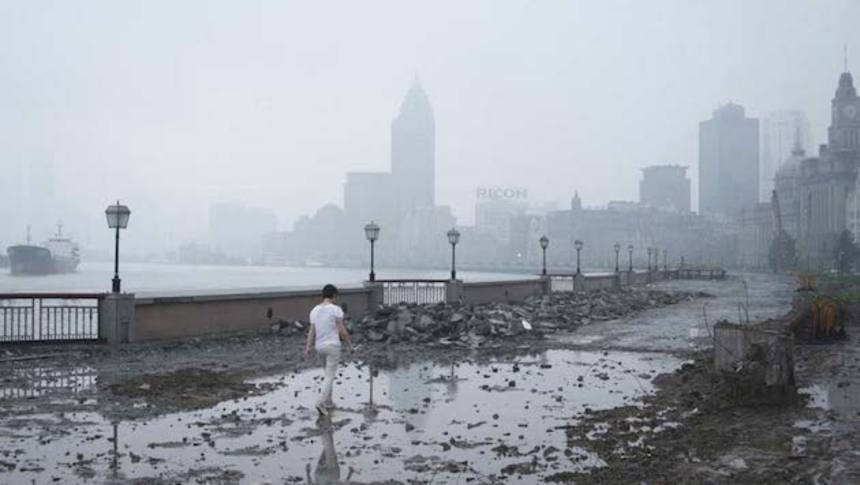Review: I WISH I KNEW Is Jia Zhangke's Wonderful Ode To Shanghai

Jia Zhangke's I Wish I Knew might not the best place to start discovering Shanghai's rich and eventful past, but it's nonetheless a wonderfully sublime and distinctly illuminating documentary that highlights the port city's heart and soul by means of firsthand, emotionally-valuable recollections paired with more reserved, but still strikingly beautiful images. In the course of the artist's meanderings through the city one gets to experience the magnificent scenery, whereas with the help of some affectionate responses from the interviewees Jia homes in on the many turning points in China's history, such as the singing of the Treaty of Nanking in 1842, Revolution of 1911, Chinese Civil War, and Cultural Revolution, finally touching upon its most recent social and cultural aspects.
I Wish I Knew is comprised of 18 truly unique stories, which aren't in any sense interconnected, but when combined transcend the limits of a typical memoir. Jia photographs people with great care, focuses on their faces, and rarely mixes narration with landscape shots, so as not to reduce the significance of the respected family stories. These recollections often deal with death and loss; they're often full of agony and nostalgia. An older citizen reminisces about the glory days and sings "I Wish I Knew", a beautiful song that directly corresponds to the English title of the film (which in Chinese can be translated into "The Legend Above the Sea"), a daughter of a party Communist party member starts to tear up as she expatiates on her father's execution, while a young bestselling-writer-turned-famous-driver laughs about his luck and boasts about his talent.
Amongst those interviewed there's also a couple of individuals strictly connected to the film industry, and their stories reflect on past experiences with filming in the heart of Shanghai, e.g. Taiwan's new wave movement's leader Hou Hsiao-Hsien recalls the experience of shooting Flowers of Shanghai on location. My favorite cinema-related anecdote, however, is the one told by Zhu Qiansheng, who looks back at the time when he was a crew member on Michelangelo Antonioni's Chung Kuo Cina - so loathed by high-ranking Communists - and explains the repercussions that the once controversial picture had on him and his job.
Jia navigates through a myriad of stories in an especially convincing manner, not always with respect to the timeline of China's history, but with enough precision and affection to demand constant attention. His decision to rely solely on very personal and often touching stories adds great emotional power to the otherwise dry facts that might not be of great importance to people who aren't exactly familiar with the tremendous change that Shanghai underwent and its many defining moments. What's especially intriguing is that Jia wants to exhibit Shanghai's magnificence and grandiosity without really capturing the vibrancy of its life. Instead, he relies on the tone and weight of the hearty and fascinating city chronicles.
A wonderfully subtle and constantly intriguing picture, I Wish I Knew feels like an ode to a city that from a trading port changed into a state-of-the-art metropolis and a hub for entrepreneurs, artists, and tourists alike. Jia's Shanghai isn't really a place of great allure and impressive elegance, perhaps even a surprisingly deserted town, and the only person that roams its streets is Jia's regular collaborator Zhao Tao, who looks as if she were searching clueless for that special someone. The director doesn't experiment with the idea of a docudrama as much as he did while filming 24 City, and these few short scenes in which Zhao appears are the only fictional ones here, and the ones where the true beauty of the classic 35mm photography kicks in.
Jia maneuvers through Shanghai's landscape with unprecedented precision, grounding the recollections in a desolate sphere that at times seems strangely pristine, yet he's never far from the monumental façade of the city's most remarkable scenes, where signs of premature dilapidation surmount the splendor of an ever-developing megalopolis.
Though Jia released two new pictures since this film's international premiere at Cannes Film Festival in 2010 - the relatively unknown Yulu and the powerful A Touch of Sin - I Wish I Knew still remains his most approachable film to date.
I Wish I Knew
Director(s)
- Zhangke Jia
Writer(s)
- Zhangke Jia
Cast
- Yindi Cao
- Hsin-i Chang
- Dan-qing Chen
- Mei-Ru Du

Do you feel this content is inappropriate or infringes upon your rights? Click here to report it, or see our DMCA policy.






